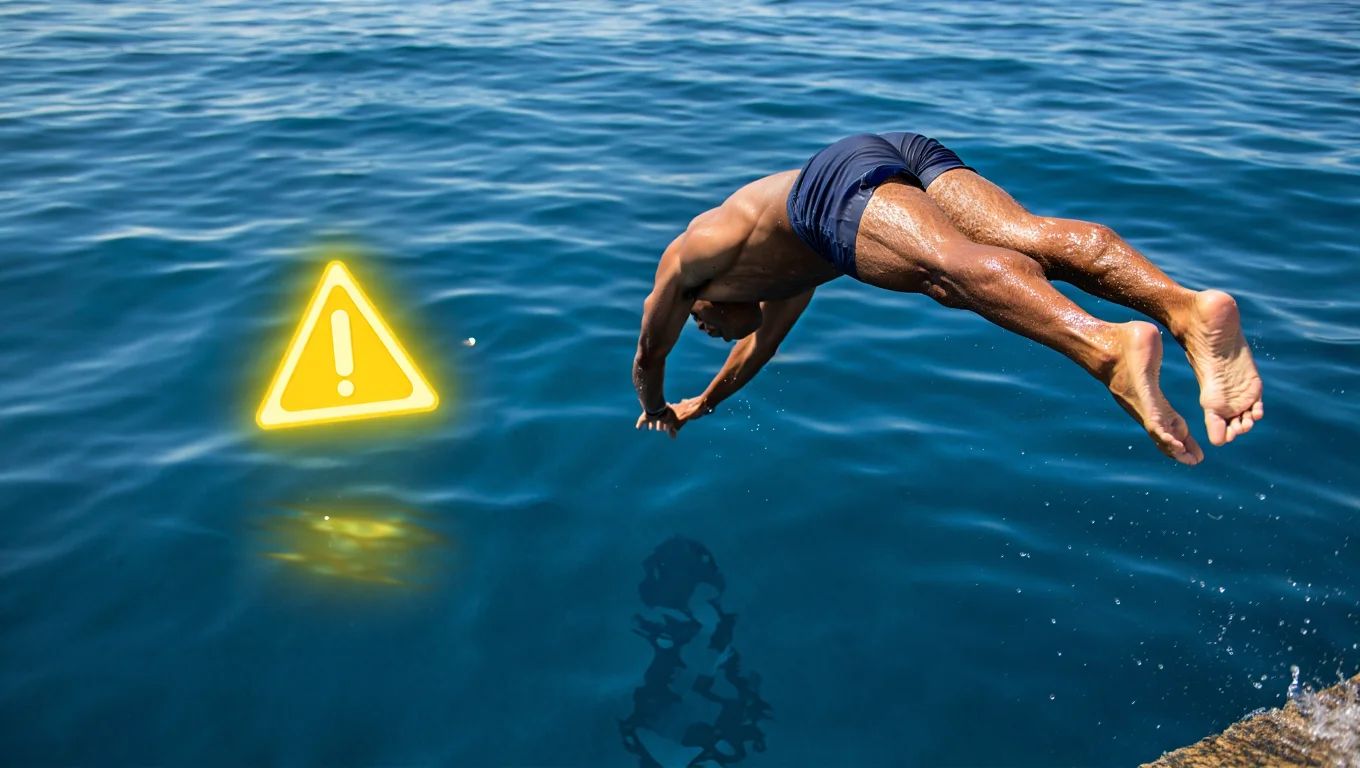Follow us on Google News (click on ☆)
A thermal shock
When you abruptly transition from very hot air to cool or even cold water (59–68°F / 15–20°C), your body experiences thermal shock. The skin's surface cools instantly, causing vasoconstriction: blood vessels contract to limit heat loss. This rapid phenomenon then increases blood pressure and heart workload.

At the same time, the heart receives two conflicting commands: the pumping effort to circulate blood through narrowed vessels and stimulation of the vagus nerve (pneumogastric nerve), which slows heart rate and can cause a sudden drop in blood pressure. These events may trigger cardiac arrest, fainting (loss of consciousness), or shock.
Risk factors:
- Heat and dehydration: a body already strained by heat and deprived of water is more vulnerable.
- Too rapid immersion: jumping or diving in without gradual entry prevents the body from adapting.
- Heavy meals or alcohol: digestion diverts a large portion of blood flow, reducing cold adaptation capacity.
- Vulnerable individuals: elderly people, those with heart conditions, or those who are less physically active are at higher risk.
Warning signs and first aid
Before losing consciousness, you may experience sudden dizziness, palpitations, chest pain, or nausea. If you or someone nearby shows these symptoms after immersion, exit the water immediately. Needless to say, fainting in water risks drowning.
Next, the affected person should lie flat on their back with legs slightly elevated until the episode passes. If unconsciousness persists beyond a few seconds or breathing is irregular, call emergency services.
Simple and effective prevention:
- Gradual entry: wet your feet first, then your waist, before submerging your head.
- Hydration: drink regularly to prevent dehydration.
- Meal breaks: wait at least 1 hour after a heavy meal before swimming.
- Avoid alcohol before swimming.
- Monitor vulnerable individuals.
With these preventive measures, you can safely enjoy the pleasures of water without risking the potentially fatal shock of cold water immersion.